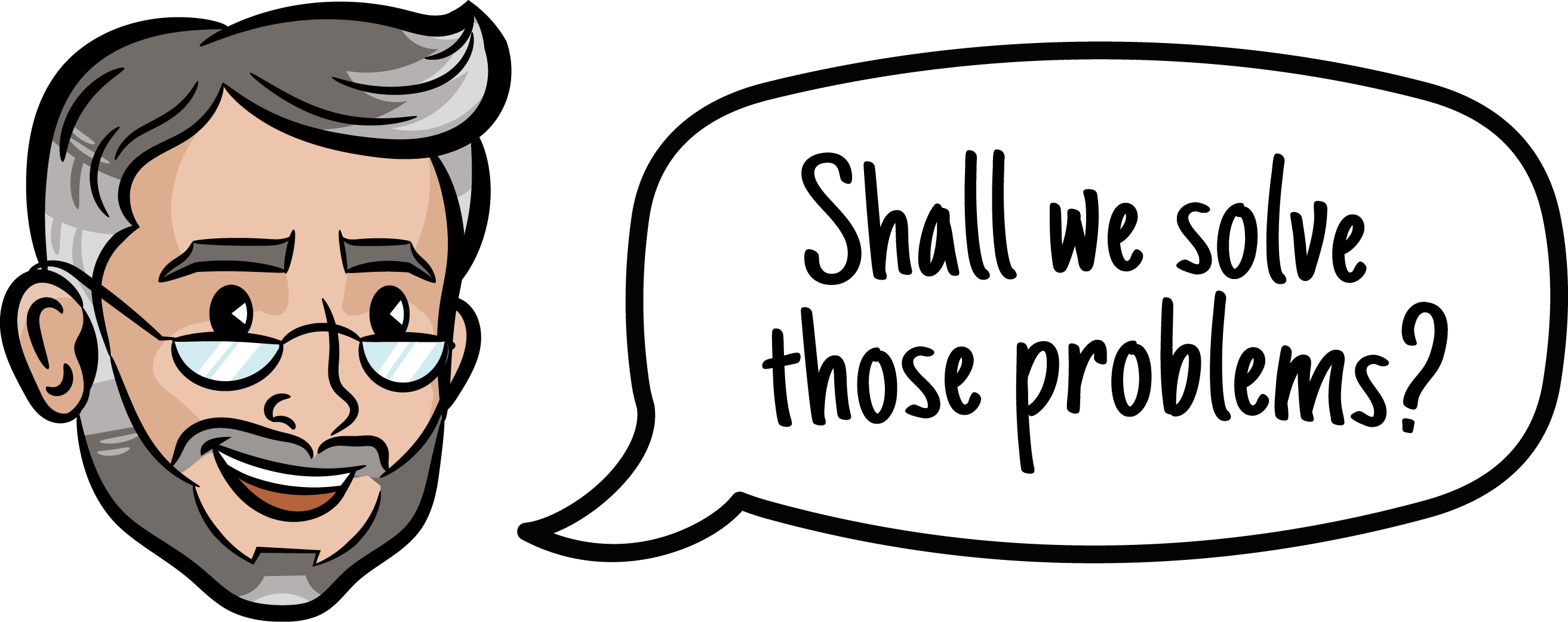Many of our readers already have websites built in WordPress, and thus have engaged WordPress agencies to help them with tasks they can’t accomplish internally.
In this article, we’ll look at what an ethical WordPress agency does and how other agencies intentionally turn your WordPress site into a black box in order to create unnecessary future billable hours.
We’ll also discuss some common terms and good questions to ask when you’re interviewing an agency that advertises its WordPress engineering or development services.
Lastly, we’ll examine what a thoughtfully deployed WordPress site can do from both a traffic and operational cost perspective.

Depending on who you believe, WordPress powers 39-44% of all websites, making it the most popular Content Management System (CMS) by far.
What’s the Purpose of WordPress?
With humble roots back in 2003, Mike Little and Matt Mullenweg released the first version primarily as a tool to make blogging easier and faster.
Many people that don’t work directly in technology are vaguely aware of it and mistakenly believe it’s still primarily a blogging tool, having come to life in a similar era to Blogger (1999), Tumblr (2007), and other more limited tools.
While it was originally a blogging tool, WordPress very quickly became extensible, meaning others could add functionality via plugins (similar to an app store) and scripts for things such as CRM integration, map integration, eCommerce shopping carts, and other tools. For a lot of our projects, we configure Hubspot and turn on its chat function on the WordPress site, for example.
The developers also wanted to make the aesthetic side of WordPress similarly simpler to manage, so they opened up a Theme library as well. Themes are basically a shortcut to achieve a certain look and feel without having to pay a designer.
So today, think of WordPress along with its massive ecosystem of plugins and themes as basically a very fast way to bring together a website for any business purpose without having to pay a developer to custom-code a website.
WordPress and websites in general typically function as middle-of-funnel tools. They receive traffic from various top-of-funnel approaches and attempt to move those visitors down the funnel to purchasing something.

Off-the-shelf components are used instead of computer science design-thinking and development cycles.

Professor’s Note:
Only under very narrow circumstances should a firm decide to custom-build its website. The reasoning to do so is usually a desire for “absolutely customizability” whereas the reality is the site becomes a maintenance nightmare that marketing teams can’t directly maintain and a drain on development resources as new features and pages are required.
For a high-performing company with a complex go-to-market strategy, your marketing team has to be able set the table for the sales and support teams, and they just can’t do it if they have to wait on developers.
What’s the Purpose of a Content Management System (CMS)?
Let’s dive a little deeper into the early roots of WordPress and other similar tools for blogging.
In the era these tools came into existence, the internet was moving from dial-up to broadband. Personal computers and specifically, laptops were widespread and relatively affordable, and most people that knew how to write were using either Windows or Mac software such as Microsoft Word, WordPerfect, or free tools included in Windows such as Notepad to do their typing and editing.
Whether using the paid tools or the free ones, they all had basic formatting shortcuts available such as underlining, bolding, font resizing, hyperlinking, and other common formats built into the software.
So WordPress and other content management systems such as these put those text editing tools into a mini version of Word that lived within an open browser window. Those word-processing tools are often referred to as a WYSIWYG (pronounced wiziwig) and these early blogging tools just put them online.
Whereas Microsoft Word creates new document files on your local machine, the blogging tools created new pages living wherever your blog was hosted. Tools that allowed image insertion and other bells and whistles were part of the early tools as well.
So a content management system’s purpose decades ago was to make website creation as easy as it was to write a document in Microsoft Word. You DID NOT need to learn HTML and later PHP to update a website.
So How Do Busy Companies End Up Needing Engineers at WordPress Agencies to Make Text Edits in WordPress?
So imagine this…
You did your research.
You picked WordPress because you saw how much of the market it had and how many plug-ins and themes were available to make its content management system even more powerful for your specific needs and do a great job of representing your brand.
You wanted a really professional look and feel that appeals to your ICP so you brought in a WordPress agency to take your site from an 85 to a 99 (you thought).

Professor’s Note
ICP sales meaning: Your ideal customer profile is the buyer persona most qualified and ready to buy.
They have BANT.
If you have multiple ICPs, your website should be designed to path each one to a page that only speaks to that person and what they say actually care about (no kitchen sinking).
And you started making requests:
Client: Hey, could you position this a little differently? I saw this really cool thing on this other site. (Shiny object syndrome)
WordPress Agency: Yes, we can do that but we’re going to have to custom-code it.
Client: Okay, I guess. Do it. We need this finished.
And with that, you authorized your agency to turn your lovely, low-cost content management system into a black box.
So What Really Happened?
When you authorized the WordPress agency to start custom coding, they switched gears.
They shifted from getting your WordPress site in shape the way it was intended to approaching it as an engineering problem.
The quick, affordable way to get a WordPress site looking great is to start with a theme that is really close for the visuals and then some light styling to get the colors and fonts right, and then use plug-ins to add any missing functionality.
Instead, they started modifying PHP files directly. They may have hard-coded styling into specific pages. They may have engineered plug-in like logic, without exposing any configuration tools that you can use when you need to change something.
So for both the immediate fix and all future fixes, instead of someone who can type an email being able to fix a spelling mistake, an engineer is required.
The result: your out-of-pocket, site-maintenance costs skyrocket, and your marketing team’s ability to get things done quickly like adding a script to increase PPC intelligence diminishes.
So How Did the WordPress Agency Benefit?
You guessed it. You now have a heavily-engineered site that requires coding skills to modify, and coding costs a lot more than word processing.
Your agency just baked in a bunch of future work for themselves and made switching to another agency very difficult.
Why? Because they custom-coded all over the place. To be able to fix it or make updates, you first have to understand what their thinking and approach were when they started working “outside the box.”
Your switching costs (to another agency) just went through the roof because they’re either going to have to spend a bunch of time deciphering what your original agency did in order to get up to speed, or they’ll simply want to start with a new site.

If you’re going to use your website the way it was intended, you’ll need to be able to act on the advice of a CRO expert. And as your product or service morphs over time, your site has to be able to keep pace or you end up with your ABM sales funnel conveying one message and your out-of-date website actually working against your sales team.
So What Do You Do to Solve This Problem?
Inevitably, companies figure out they are paying a lot of money for what could be done with simple, off-the-shelf components.
Like laptops and cars, most of us have no business having one “custom built.”
The good news is with WordPress, you can move your content into a new, clean site, so it’s not like you lose all of your writing, images, or free traffic. You can keep the same structure so all your backlinks work just fine.
What can be a challenge is when you have hard-coded landing pages (geometrically positioned text near buttons, on top of videos, etc.). You’ll have to be sure you copy-paste over those elements and arrange them using the CMS in your new system.
What you have to do is find someone who works with modern WordPress (block-based) practices and has an ethical approach to implementing your tools.
You should settle on a theme with the following minimum requirements (and they generally cost less than $200/year):
- A block-based builder (text blocks, image blocks, code blocks, video blocks, etc.)
- Font control
- Color control
- Padding and margin control on individual elements
- Padding and margin control on the template applied to each page
- Text mark-up control (so you can H1 and H2 tags for SEO)
- Image control
- An exposed global section for overwriting your cascading style sheet (CSS)
- A separate single-page CSS overwriting section
- Super-fast load time (Google penalizes slow speeds)
*You should try to avoid having to get these features via plug-ins. Ideally, you choose a theme that already has them without a plug-in.
You’ll likely need a few plug-ins that will speed up your marketing team for things like:
- On-page SEO scoring and recommendations
- Contact forms
- Page cloning
- Speed tuning
Can I See an Example?
Yep. This page was built using a premium theme and minimal plug-ins. It gets a very good speed score running on commodity hosting (BlueHost, Siteground, Lunar Pages, etc.). Moving it one tier up (WPEngine, Cloudways, etc.) will get it to 99/100.
No engineers were used to put it together. All text and image elements are editable via the content management system. Any professional design can be implemented by a non-coder, and looks great on both desktop and mobile. The out-of-pocket costs for both designer and premium WordPress tools to build this site were less than US$700.
Can Sales Funnel Professor Help Me Escape My Black Box and Get Into a WordPress Site that Is Reasonable to Manage?
Yes, we provide this type of work on a consulting basis as part of our larger sales funnel-building practice.
We’ll also help you with site organization, messaging, and much more. You can see a list of the types of things we examine in our Sales Funnel Audit Package and we fix themselves are if you’d like us to implement for you.
For Further Reading: Twitter After 5 months of Elon Musk… What Have We Learned?


